TELEPHONES ANSWERED 24 HOURS A DAY
Recent Blog Posts
4 Potential Defenses to Federal Money Laundering Charges
 Federal money laundering charges can result in years of prison time. Financial crimes are taken very seriously by the FBI and other federal law enforcement agencies. If you are up against charges for money laundering, building a strong defense is your top priority right now. Even after any judicially-imposed penalties have been completed, you could be left a felon. Being a felon closes doors - it may be extremely difficult to find the type of job you want or desirable housing. There are a number of possible defense strategies. The particular strategy your lawyer will use is heavily dependent on the specific facts and circumstances of your case. After assessing your case, your attorney will design a defense that is most likely to work well for you.
Federal money laundering charges can result in years of prison time. Financial crimes are taken very seriously by the FBI and other federal law enforcement agencies. If you are up against charges for money laundering, building a strong defense is your top priority right now. Even after any judicially-imposed penalties have been completed, you could be left a felon. Being a felon closes doors - it may be extremely difficult to find the type of job you want or desirable housing. There are a number of possible defense strategies. The particular strategy your lawyer will use is heavily dependent on the specific facts and circumstances of your case. After assessing your case, your attorney will design a defense that is most likely to work well for you.
What Are Some Defense Strategies for Money Laundering?
There are a number of strategies your lawyer may want to use, some specific to money laundering, and others more general. You may have a good defense that is not listed here, so make sure to speak with an attorney to find out whether another defense could apply to your situation. Some defense strategies for money laundering include:
What is Medical Identity Theft?
 Like everything else lately, medical care has become extraordinarily expensive for the average person. It should come as no surprise that some people have resorted to identity theft in order to obtain medical care. However, doing so can lead to federal charges rather easily. Because most major hospital systems are tied to some form of federal funding or operate in multiple states, most instances of medical identity theft will fall under federal jurisdiction. While a somewhat understandable offense, identity theft remains a felony even when it is committed in an effort to receive health care. If you have been charged with identity theft in a medical context, it is important that you immediately contact a skilled federal crimes defense attorney.
Like everything else lately, medical care has become extraordinarily expensive for the average person. It should come as no surprise that some people have resorted to identity theft in order to obtain medical care. However, doing so can lead to federal charges rather easily. Because most major hospital systems are tied to some form of federal funding or operate in multiple states, most instances of medical identity theft will fall under federal jurisdiction. While a somewhat understandable offense, identity theft remains a felony even when it is committed in an effort to receive health care. If you have been charged with identity theft in a medical context, it is important that you immediately contact a skilled federal crimes defense attorney.
How Does Medical Identity Theft Work?
Medical identity theft is a bit of an unusual, but increasingly common form of stealing another person’s identity. In general, it occurs when someone uses false documentation or provides false information to a medical provider, claiming to be someone else in order to be treated. Forms of this offense include:
What to Do if Your Federal Criminal Case Goes Public
 Getting arrested is embarrassing enough if only one or two people know about it. When the news of your arrest ends up in the local paper - or worse - you will have to start taking important precautions to protect yourself and your family. Depending on the nature of the crime you are charged with, and whether there was any significant local impact, you may face serious backlash that will impact every aspect of your life. You may also feel pressure to speak up publicly in your own defense, but this is rarely a good idea. The first thing you need to do is find a lawyer who is experienced at managing media attention during a high-profile case.
Getting arrested is embarrassing enough if only one or two people know about it. When the news of your arrest ends up in the local paper - or worse - you will have to start taking important precautions to protect yourself and your family. Depending on the nature of the crime you are charged with, and whether there was any significant local impact, you may face serious backlash that will impact every aspect of your life. You may also feel pressure to speak up publicly in your own defense, but this is rarely a good idea. The first thing you need to do is find a lawyer who is experienced at managing media attention during a high-profile case.
What Should I Do if I See My Case in the News?
You might be feeling a strong desire to try to publicly clear your name or explain yourself. This almost never improves the situation, and it is very likely to do the opposite. Always follow your attorney’s specific advice, but some general advice can include:
The CARES Act and Federal Fraud
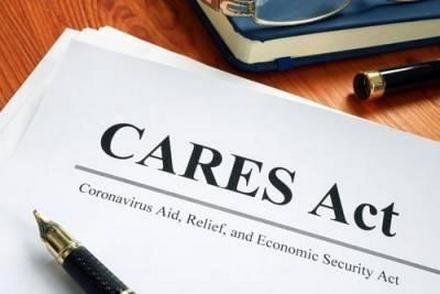 The Coronavirus Aid, Relief, and Economic Security Act—commonly known as the “CARES Act” provided critical assistance to an enormous amount of American families and small businesses. This funding was designed to keep struggling people and small companies afloat in the midst of lockdowns and a general economic downturn during a public health crisis. Most businesses used these emergency relief loans to manage expenses - like payroll - that they otherwise would not have been able to cover during the pandemic. However, there have also been a large number of fraud accusations relating to misused funding. As the nation adjusts to COVID as an endemic disease, moving away from the panic of a pandemic, the federal government is beginning to crack down on those who fraudulently claimed or used these funds.
The Coronavirus Aid, Relief, and Economic Security Act—commonly known as the “CARES Act” provided critical assistance to an enormous amount of American families and small businesses. This funding was designed to keep struggling people and small companies afloat in the midst of lockdowns and a general economic downturn during a public health crisis. Most businesses used these emergency relief loans to manage expenses - like payroll - that they otherwise would not have been able to cover during the pandemic. However, there have also been a large number of fraud accusations relating to misused funding. As the nation adjusts to COVID as an endemic disease, moving away from the panic of a pandemic, the federal government is beginning to crack down on those who fraudulently claimed or used these funds.
If you used CARES Act funds and are now being accused of fraud, it is important that you promptly reach out to a qualified federal crimes attorney. These cases are now being investigated and prosecuted at a much higher rate than they were during the height of the pandemic.
4 Federal Tax Crimes the IRS Will Notice
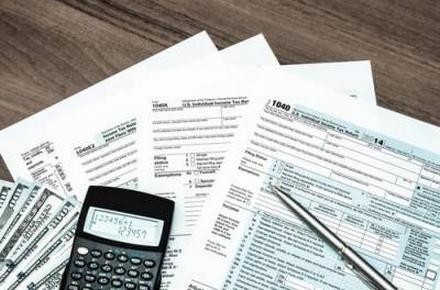 With the tax season beginning, it may be a good time to take a look at a few rather common types of tax crimes. It can be very tempting for individuals at any income level to try to maximize their return or minimize their liability using illegal methods. This type of white-collar crime is being cracked down on. There is no such thing as a “white lie” when it comes to filing your income taxes. If you are caught, the IRS makes a formidable opponent, and you could end up in federal prison. Should you be accused of a tax crime, you will need a highly experienced attorney to help you resolve your case and reduce the likelihood of severe consequences.
With the tax season beginning, it may be a good time to take a look at a few rather common types of tax crimes. It can be very tempting for individuals at any income level to try to maximize their return or minimize their liability using illegal methods. This type of white-collar crime is being cracked down on. There is no such thing as a “white lie” when it comes to filing your income taxes. If you are caught, the IRS makes a formidable opponent, and you could end up in federal prison. Should you be accused of a tax crime, you will need a highly experienced attorney to help you resolve your case and reduce the likelihood of severe consequences.
What Are the Types of Tax Fraud the IRS Looks for?
Honesty is the best policy when it comes to filing a tax return. Often, the higher your income, the more scrutiny you may be under - but this does not mean those with lower incomes can get away with tax crimes. Types of tax fraud the IRS will be looking out for on 2021 tax returns include:
Which Federal Crimes Carry a Life Sentence?
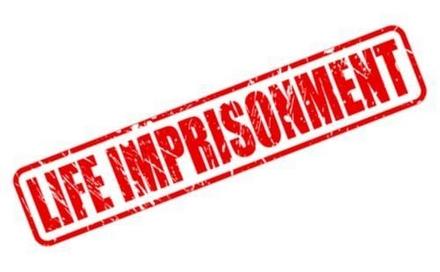 Life imprisonment without the possibility of parole is all but the worst-case scenario for those charged with a serious federal crime. Some may even say that they fear spending the rest of their life in prison more than they fear the death penalty. Fortunately, these sentences are strikingly rare. Less than 0.5% of federal inmates are serving a life sentence. This harsh punishment is typically reserved for the most serious offenders, convicted of major felonies.
Life imprisonment without the possibility of parole is all but the worst-case scenario for those charged with a serious federal crime. Some may even say that they fear spending the rest of their life in prison more than they fear the death penalty. Fortunately, these sentences are strikingly rare. Less than 0.5% of federal inmates are serving a life sentence. This harsh punishment is typically reserved for the most serious offenders, convicted of major felonies.
If you are facing serious federal charges, your best bet is to find a highly skilled criminal defense lawyer with experience in the federal courts who can fight to avoid a conviction in the first place.
Which Convictions Can Lead to a Life Sentence?
There are some crimes, like multiple homicides, that you might expect a life sentence to result from. Others may surprise you. Federal felonies that could land you in prison for life include:
The Five Types of Federal Prisons
 You almost certainly do not want to go to any type of prison. Naturally, the most desirable outcomes are having your case dismissed or being found not guilty, followed by some type of probation that does not involve incarceration. In many cases, a skilled attorney can work with the prosecution to achieve a resolution that does not involve you wearing an orange jumpsuit. In other cases, a prison sentence is nearly inevitable, and your attorney may recommend defense strategies aimed at reducing the length of a sentence - or advocating for you to serve your time in a lower security prison.
You almost certainly do not want to go to any type of prison. Naturally, the most desirable outcomes are having your case dismissed or being found not guilty, followed by some type of probation that does not involve incarceration. In many cases, a skilled attorney can work with the prosecution to achieve a resolution that does not involve you wearing an orange jumpsuit. In other cases, a prison sentence is nearly inevitable, and your attorney may recommend defense strategies aimed at reducing the length of a sentence - or advocating for you to serve your time in a lower security prison.
If you are worried that your federal criminal case may end in a prison sentence, you may want to know more about the different types of federal prisons, and which one you could be sent to. If prison is a possibility based on your charges, you will need to work closely with an experienced attorney.
What Defines a Federal Hate Crime?
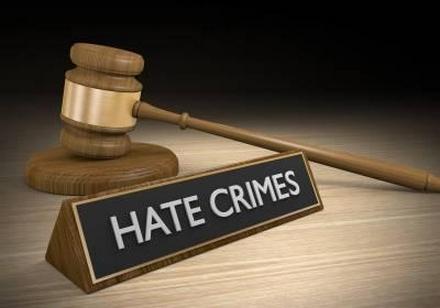 Being charged with a hate crime puts you in a very difficult position. If you are accused of committing a crime based on prejudice against the victim, you are likely to be branded a bigot. That image can be difficult to shake, especially since alleged hate crimes are often publicized. On top of a lengthy prison sentence, you could have to deal with permanent social repercussions. Sometimes, people are surprised to learn that they have been charged with a hate crime based on their choice of victim - it can be difficult for prosecutors to discern whether the crime was motivated by hate or by something else.
Being charged with a hate crime puts you in a very difficult position. If you are accused of committing a crime based on prejudice against the victim, you are likely to be branded a bigot. That image can be difficult to shake, especially since alleged hate crimes are often publicized. On top of a lengthy prison sentence, you could have to deal with permanent social repercussions. Sometimes, people are surprised to learn that they have been charged with a hate crime based on their choice of victim - it can be difficult for prosecutors to discern whether the crime was motivated by hate or by something else.
If you have been accused of a hate crime, it is important to tread carefully. Your best bet is to immediately contact a federal crimes lawyer and follow his advice.
When is a Crime Considered a Hate Crime?
Most offenses that involve a victim could potentially be charged as a hate crime. “Hate crime” is not an offense in and of itself - it is a sort of enhancement that is added onto another crime. So, for a hate crime to be charged, there must first be a crime of some type. Assaults and criminal damage to property are common examples. Then, the crime must be motivated by hate towards a particular group of people. The requisite hate can be directed towards the victim based on their:
What is Immigration Services Fraud?
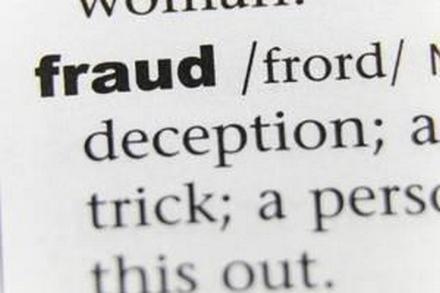 Most federal crimes related to immigration are committed by people trying to bypass immigration laws and remain in the country illegally or help someone else do so. Immigration services fraud is different - it is a crime committed against immigrants who are generally attempting to comply with the law. Immigration services fraud occurs when someone fraudulently claims to be able to provide services such as expedited work permits for immigrants.
Most federal crimes related to immigration are committed by people trying to bypass immigration laws and remain in the country illegally or help someone else do so. Immigration services fraud is different - it is a crime committed against immigrants who are generally attempting to comply with the law. Immigration services fraud occurs when someone fraudulently claims to be able to provide services such as expedited work permits for immigrants.
When this is done with the intent to defraud immigrants, federal fraud charges are likely. Unfortunately, people trying to lawfully immigrate sometimes face charges after being taken advantage of in one of these schemes. If you are in either situation, it is important that you take prompt steps to protect yourself, starting with calling a lawyer.
How Does Immigration Services Fraud Work?
Legal immigrants may not always have an easy time staying in compliance. Work permits and visas must be kept current, and there is a lot of documentation to keep track of. The process of applying for any form of legal residency can take a long time and become frustrating. This is when fraudulent immigration services schemes come in.
5 Surprising Crimes That Are Now Committed Online
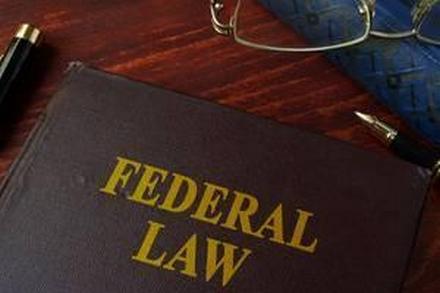 Ever since the internet became commonplace, a surprising amount of crime has moved online. Many people erroneously feel that it is “safer” to engage in criminal activity from the comfort of their own computer chair. Some federal crimes, like child pornography and certain types of fraud, are now almost exclusively committed over the internet. However, since the pandemic began and more people were kept home, new and different types of federal crimes have found space in the virtual sphere.
Ever since the internet became commonplace, a surprising amount of crime has moved online. Many people erroneously feel that it is “safer” to engage in criminal activity from the comfort of their own computer chair. Some federal crimes, like child pornography and certain types of fraud, are now almost exclusively committed over the internet. However, since the pandemic began and more people were kept home, new and different types of federal crimes have found space in the virtual sphere.
The FBI is now making a push to crack down on cybercrime. If you were caught in a recent bust of some type or found yourself under arrest over an online activity, you must take steps to protect yourself immediately. Contacting a skilled federal crimes attorney is a good start.
Which Federal Crimes Are Now Committed Over the Internet?
Many people accused of internet-based crimes are surprised to learn that they are being charged federally instead of at the state level. The reason for this is that when you use the internet to do something illegal, you are almost certainly “touching” another state or interstate commerce in some way. This can push you into federal jurisdiction and up the seriousness of your situation tenfold.




